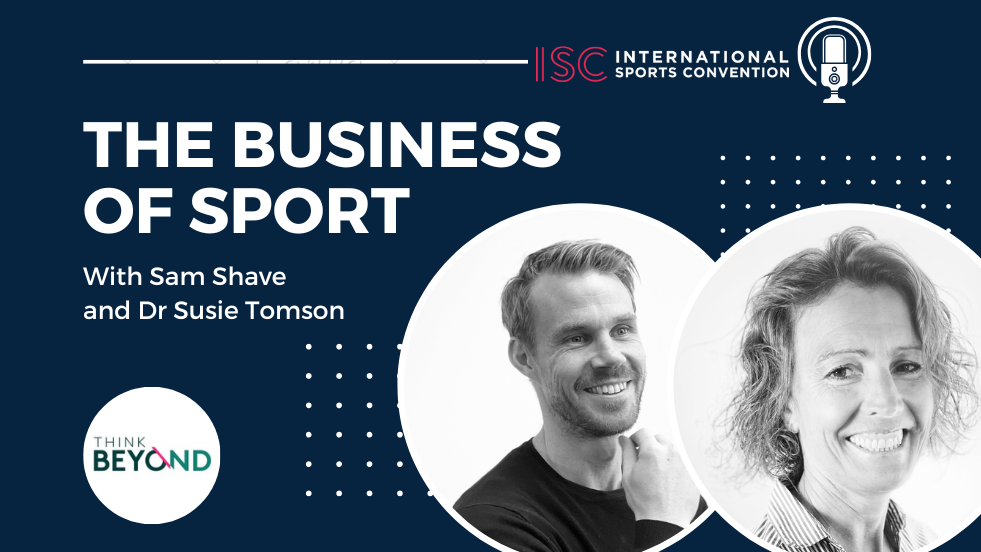ISC International Sports Awards Agency of the Year nominee, Think Beyond, is a leading social impact and sustainability consultancy, working in and through sport and entertainment.
With offices in London, New York and Lausanne, they have an impressive portfolio of clients keen to prepare for the future, including Liverpool Football Club, World Athletics, World Rugby, FIBA, Subway, The Premier League, ESPN, SailGP and more.
In this latest ISC Business of Sport podcast, Andrew James talks to Managing Partner Sam Shave and Senior Partner, Dr Susie Tomson.
Sam on the changing landscape of sustainability in sport:
“We talk about the shift from risk, to opportunity. This started off as CSR and sport felt it had to do something, because someone might look at us, so let’s make sure we tick a couple of boxes and give some money to this charity, so nobody is going to have an argument with us now.
Then it got to the point where sport realised it probably does have to do something. There’s regulation coming in, fan and sponsor expectations etc. But it was still fundamentally, risk mitigation.
What we try to embed with our clients, is that actually, you need to take a different mind set. Fundamentally, what does it look like if you become leaders in this space? You are no longer just reliant on the size of your perimeter advertising boards or the eyeballs on them, you now have a story to tell and that human interest is attractive to partnets. So it’s not about mitigating risk, it’s about maximising opportunity.”
Susie on the business case for sustainability in sport:
“There are three angles really.
One is just, fundamentally, getting your house in order. You can put a value on retaining and attracting clients, there’s a lot of research done around the expectations of the next generation and you can put a value on that too.
You can also start looking at what happens if you lose your licence to operate from an environmental or health and safety perspective, where there are values if you have a breach of compliance.
The third aspect is commercialisation, which is part of the conversation, but becoming an increasingly critical part.
Susie on the climate future:
“When you talk about the climate, that really is looking to the future and making sure that your sport or your business is future-proofed and resilient to the impacts. Now, as in Spain recently, we are seeing lost days of events and damage to infrastructure. All of that has a cost.
We are certainly now moving into that space where we are helping our clients just measuring their carbon and signing the Sports Climate Action Pledge and making sure they are not being damaging, to now realising that you now have to start thinking about what the risk and the impact is on you from a climate perspective.
Looking at each risk, how can you flip that on it’s head and turn it into an opportunity and make sure that from grassroots through to the professional level, you are ready for what is going to come down the track. We are starting to put numbers on ‘what is the cost of adaptation’ and ‘what is the cost of inaction’.”
Sam on the American focus of the next four years, with both the world’s biggest sporting events heading to the USA.
“We are looking quite carefully at the US. Whatever happens over there will be interesting to watch and we hope to be an integral part of that.
We already have an office in New York and interesting clients there. NASCAR is an absolutely fascinating piece to work on. A traditional sport with a really traditional fanbase. In terms of the US political situation their fanbase will have a view on sustainability, but actually, they have got an incredible leadership team that are saying, ‘we want to look at how NASCAR develops and changes into the future”.
It is easy to get into some kind of rabbit hole, looking at what needs to be done with sustainability. But actually, you just want to think ‘what is the kind of sport you want to be delivering in 20 years time and how do you get to that point.
There’s going to be a huge amount of change and sustainability is going to be one of that pieces of change.”

